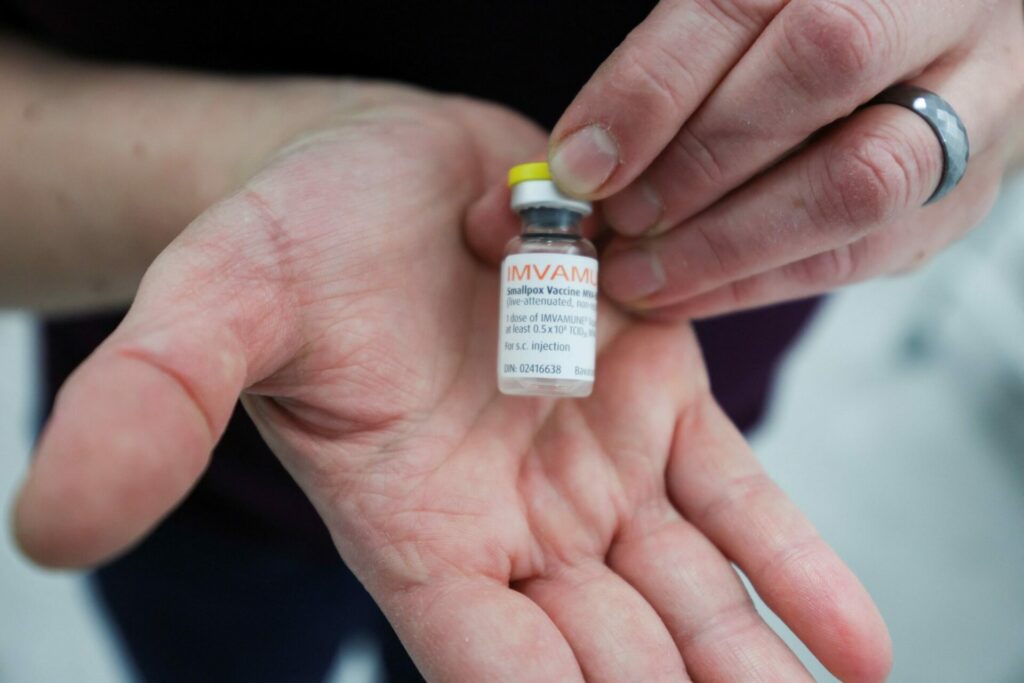From Thursday 6 October, the Brussels-Capital Region is expanding its list of centres where the preventive vaccine against the monkeypox virus is offered to include the Pacheco centre in the north of the city.
In addition to the four hospitals that already offered the jab (CHU Saint-Pierre, Cliniques Universitaires Saint-Luc, Erasmus Hospital, UZ Brussel), those who are eligible and want to be preventively vaccinated against monkeypox can also go to the Pacheco vaccination centre from Thursday.
"People who have already been exposed to the virus should still go to one of the four hospital centres to be vaccinated," said France Dammel, spokesperson for the Brussels health authorities, adding that preventive vaccination against monkeypox in Pacheco is only available by appointment through the call centre (02 214 19 29).
Currently, vaccination timings for monkeypox in Pacheco are from 09:45 to 17:30 on Thursdays and Fridays, and from 09:00 to 13:00 on Saturdays.
Related News
- Monkeypox vaccination group to be extended
- EU buys additional 170,000 monkeypox vaccines
- Monkeypox: WHO notes 'early signs' of a slowdown in Europe
In addition to those who have already been exposed to the virus, current regulations state that only specific groups of people are eligible to be vaccinated preventively due to the limited amount of vaccines available.
- people with a severely weakened immune system due to disease (cancer under treatment or HIV/AIDS with low CD4 levels) and/or treatment (chemotherapy, transplantation), who are at high risk of becoming infected with the monkeypox virus,
- male and transgender sex workers,
- laboratory staff handling virus cultures,
- women on PrEP (pre-exposure prophylaxis) treatment who have frequent sexual contact,
- since 23 September, men with alternating male sex partners.
According to current guidelines, those meeting any of the above criteria can be given a first dose of the vaccine as long as there is stock. "If the first dose is administered in Pacheco, a second appointment will be scheduled 28 days later."

